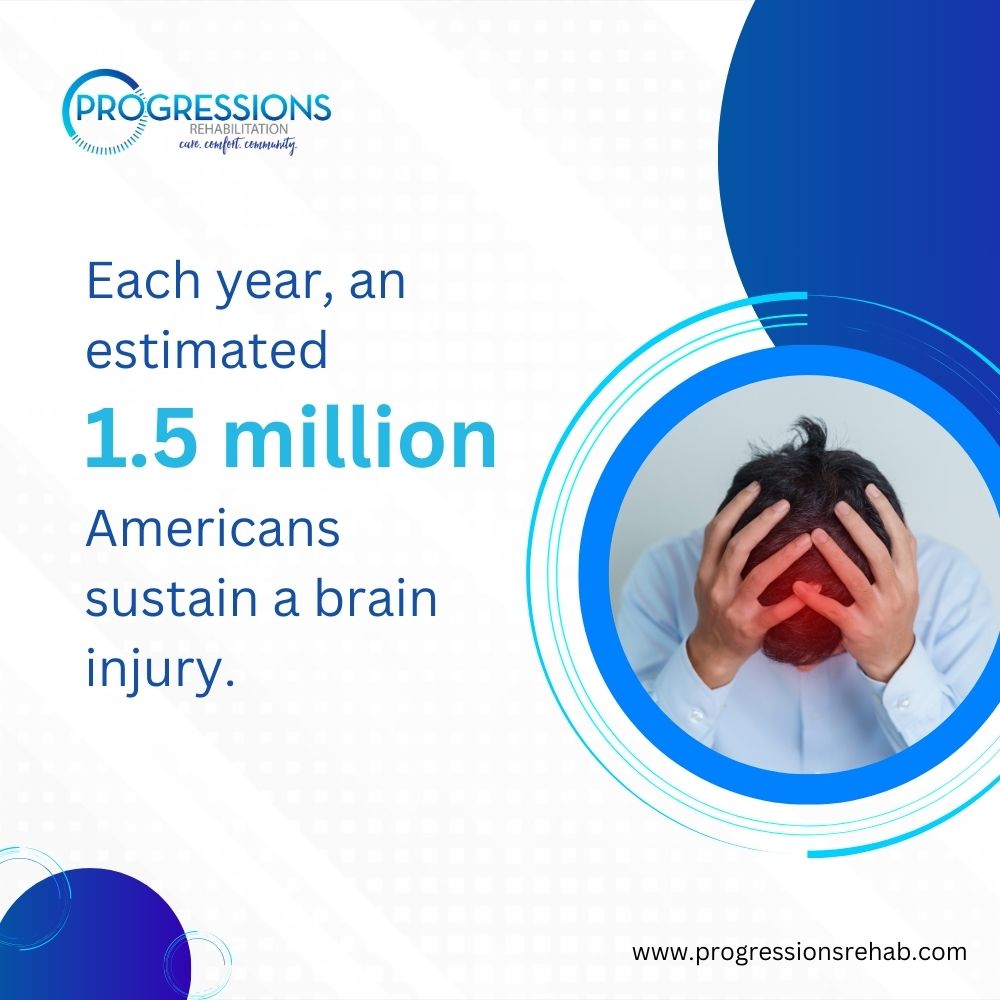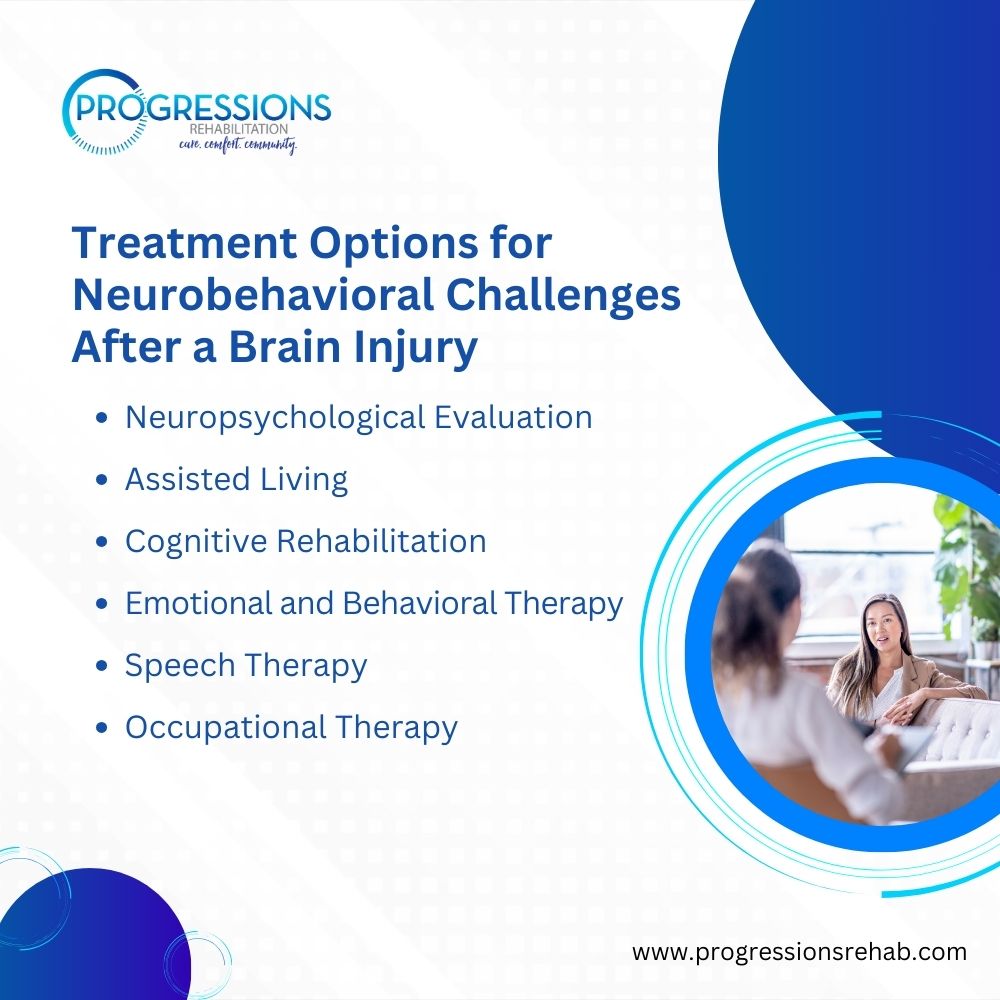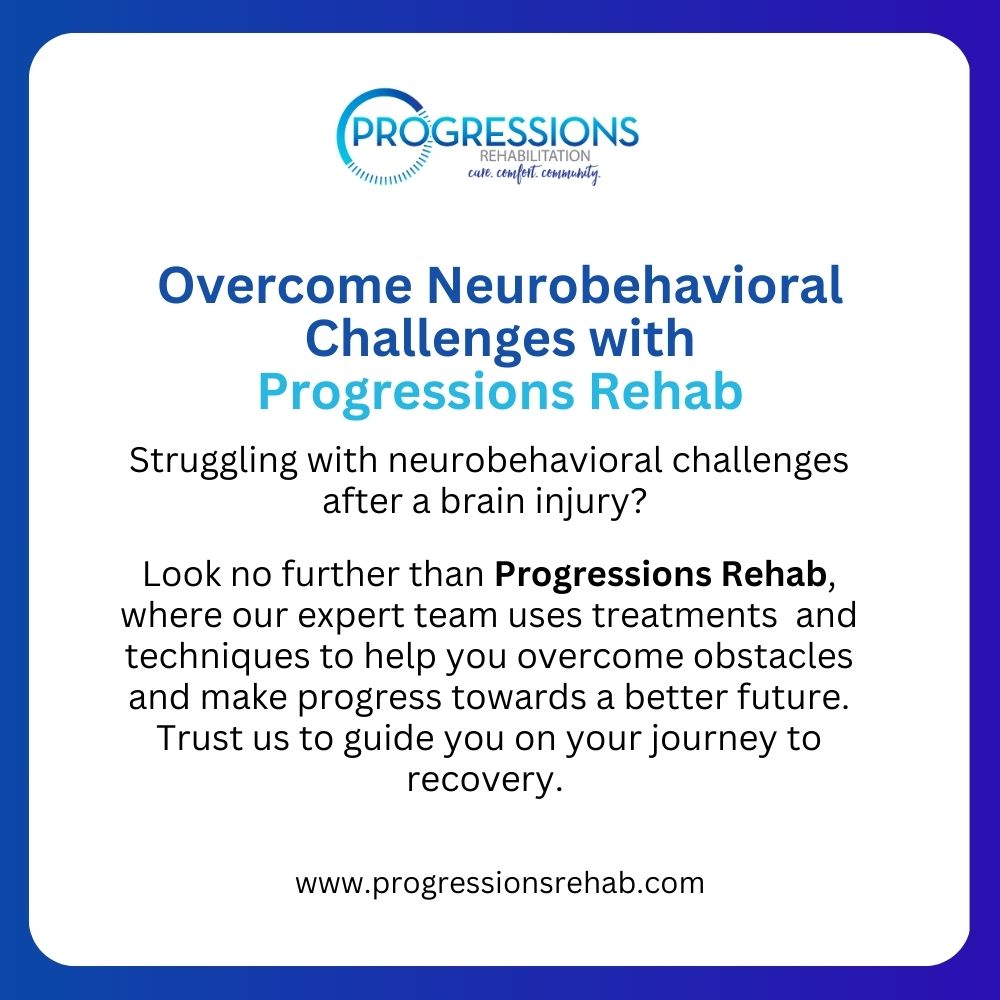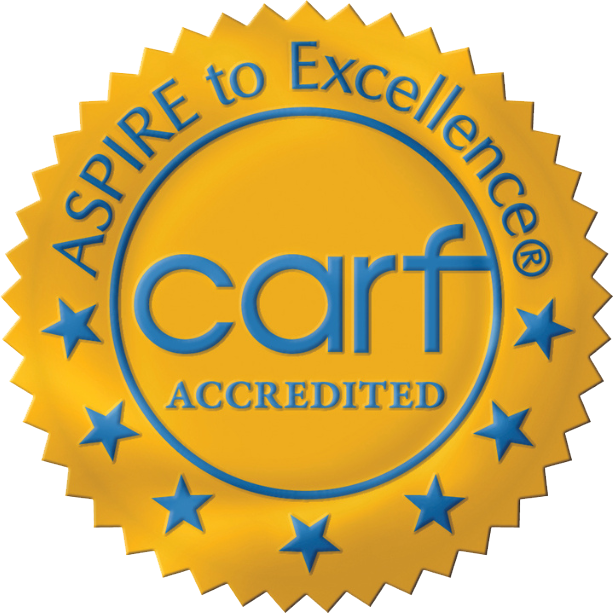An estimated 1.5 million Americans sustain a brain injury each year. Brain injury is a life-changing event that can significantly impact a person’s physical, emotional, and cognitive functioning. The brain is the most complex organ in the human body, controlling every aspect of our daily lives. When it is injured, it can lead to a wide range of neurobehavioral challenges that can make it difficult for individuals to function independently.
This blog will explore the common neurobehavioral challenges after brain injury and discuss how Progressions Rehab can help individuals overcome these challenges and lead more fulfilling lives.

Common Neurobehavioral Challenges After Brain Injury
Some of the most common neurobehavioral challenges that occur after brain injury include:
Cognitive Impairment
Cognitive impairment refers to memory, concentration, thinking, and problem-solving difficulties. These challenges can make it challenging for individuals to perform daily tasks, such as remembering appointments or managing finances.
Emotional Disturbances
Brain injury can also lead to emotional disturbances such as depression, anxiety, and mood swings. These challenges can significantly affect an individual’s overall well-being and quality of life.
Behavioral Changes
Brain injury can cause individuals to experience behavioral changes such as impulsivity, aggression, and poor judgment. These challenges can make it challenging for individuals to control their actions and may impact their relationships with others.
Communication Difficulties
Damage to the brain can also affect an individual’s ability to communicate effectively. This can make it challenging for them to express their thoughts and needs, leading to frustration and isolation.
Treatment Options for Neurobehavioral Challenges After a Brain Injury

At Progressions Rehab, our highly trained and experienced therapists understand the complex nature of neurobehavioral challenges and their impact on a person’s life. We offer personalized, evidence-based treatment programs to help individuals overcome these challenges and regain their independence.
Our rehabilitation for brain injury in Michigan is multi-disciplinary, which means we address all aspects of an individual’s functioning. Our team includes neuropsychologists, occupational therapists, speech therapists, physical therapists, and mental health professionals who work together to provide the best possible care.
Some of the services we offer to address neurobehavioral challenges after brain injury include:
Neuropsychological Evaluation
We conduct comprehensive neuropsychological evaluations to assess an individual’s cognitive functioning, emotional well-being, and behavioral changes. This helps us identify an individual’s neurobehavioral challenges and develop a personalized treatment plan.
Assisted Living
Our Assisted Living for TBI patients provides a safe and supportive environment for individuals with neurobehavioral challenges after brain injury. Our trained staff addresses cognitive, emotional, and physical needs to help clients regain independence and maximize their quality of life. Trust us to provide personalized and compassionate care.
Cognitive Rehabilitation
Our cognitive rehabilitation program is designed to improve memory, attention, problem-solving, and other mental functions. We use techniques such as memory training and compensatory strategies to help individuals overcome cognitive impairments and improve their daily functioning.
Emotional and Behavioral Therapy
Our team of mental health professionals provides therapy to help individuals overcome emotional disturbances and behavioral changes. Through individual and group therapy, we teach coping skills and techniques to manage emotions and behavior effectively.
Speech Therapy
Damage to the brain can affect an individual’s ability to speak and understand language. Our speech therapists work with individuals to improve their communication skills through various techniques, including speech exercises and language activities.
Occupational Therapy
Occupational therapy focuses on helping individuals perform daily tasks and activities independently. Our occupational therapists work with individuals to develop adaptive strategies and use assistive devices to help them overcome any physical or cognitive limitations.
Coping Strategies for Individuals and Families
With the right coping strategies, individuals and families can navigate this challenging journey and find ways to live fulfilling lives.
Seek Professional Help
The first and most crucial step in coping with neurobehavioral challenges after a brain injury is seeking professional help. A neuropsychologist or a therapist can help individuals and families understand the changes in behavior and provide appropriate treatment. They can also help in developing coping strategies for managing challenging symptoms.
Educate Yourself
Knowledge is power, and this is especially true when dealing with neurobehavioral challenges after a brain injury. Educating yourself and your family about the injury, its effects, and potential challenges is essential. This will help you better understand the person’s behavior and develop effective management strategies.
Practice Patience and Understanding
Dealing with neurobehavioral challenges can frustrate the individual and their loved ones. Practicing patience and understanding towards each other during this time is crucial. Remember that the changes in behavior result from the injury, and the person is not intentionally trying to be complicated.
Establish a Routine
Following a routine can be beneficial for individuals with brain injuries, as it provides structure and a sense of stability. It can also help manage challenging behaviors. Work with the individual to establish a routine that meets their needs and capabilities.
Focus on Positive Reinforcement
Due to their condition, individuals with brain injuries may struggle with self-esteem and confidence. Focus on positive reinforcement and praise their efforts, no matter how small. This can help boost their self-confidence and motivate them to recover.
Take a Break and Practice Self-care
Caring for a person with a brain injury can be physically and emotionally draining. It is crucial to take a break when needed and practice self-care. This could be as simple as walking, spending time with friends, or engaging in a hobby. Taking care of yourself will make you a better caregiver for your loved one.
Join a Support Group
Support groups provide a safe and non-judgmental space for individuals and families dealing with similar challenges to connect and share their experiences. It can be a source of comfort and understanding and also provide practical tips and coping strategies.
Take the First Step Towards Recovery with Progressions Rehab
Progressions Rehab is renowned for being one of the leading long-term care facilities for brain injury patients. Our primary goal is to assist patients in overcoming their neurobehavioral obstacles and living purposeful lives. Our dedicated team is committed to delivering exceptional care and support to help patients reach their desired outcomes and advance towards complete recovery.
If you or a loved one is experiencing neurobehavioral challenges after brain injury, do not hesitate to contact us. We offer individualized treatment plans tailored to each person’s unique needs and work closely with families to ensure their loved one receives the best care possible.
Take the first step toward recovery, and contact us today. Together, we can make progress toward a brighter tomorrow.

***
The material on this site is for informational purposes only and DOES NOT CONSTITUTE THE PROVIDING OF MEDICAL ADVICE, and is not intended to be a substitute for independent professional medical judgment, advice, diagnosis, or treatment. Always seek the advice of your physician or other qualified healthcare provider with any questions or concerns you may have regarding your health.



